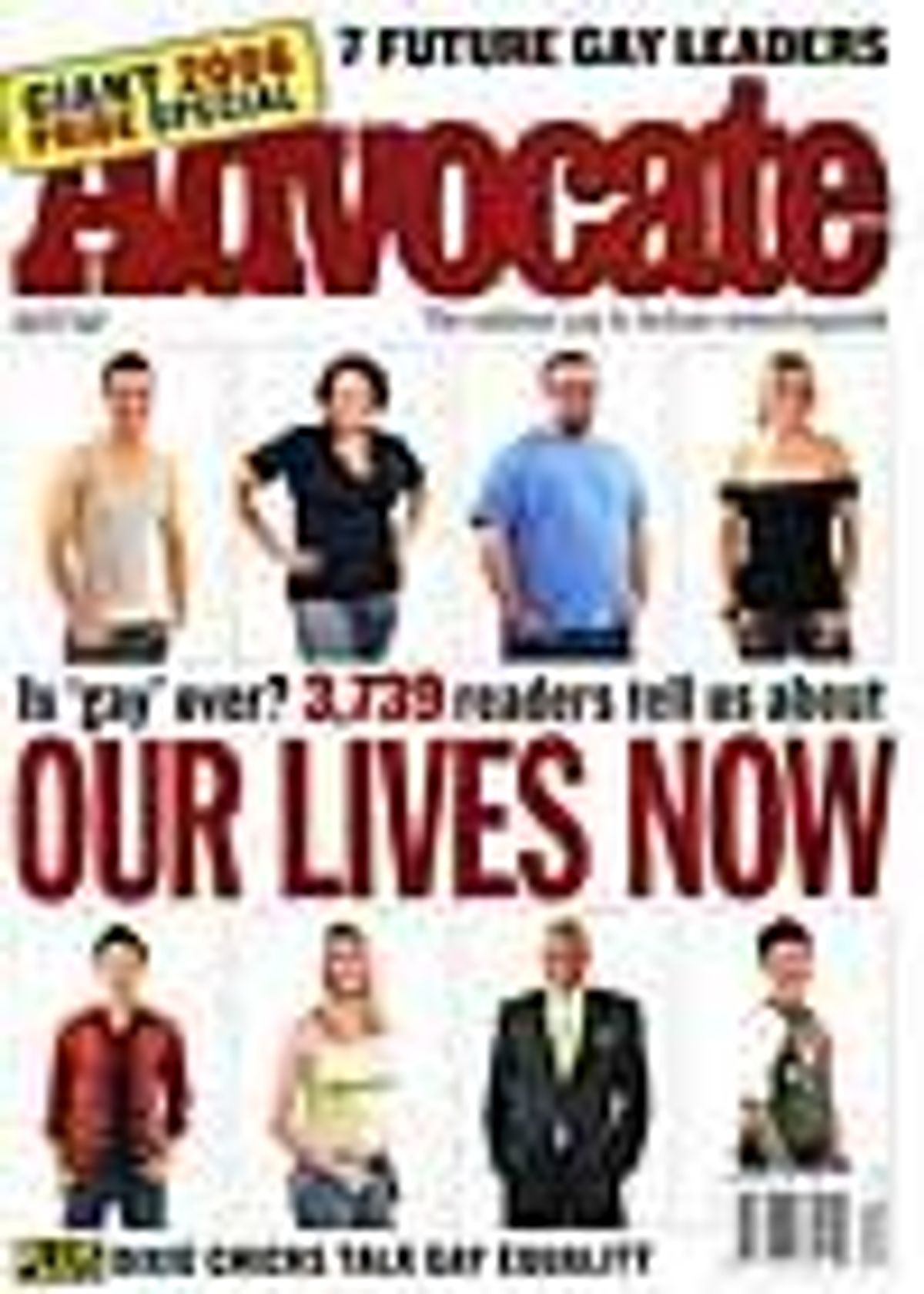All Rights reserved
By continuing to use our site, you agree to our Private Policy and Terms of Use.
The U.S. Patent and Trademark Office has a track record of approving provocative slogans and business names. Psychobitch. Evil Pussy. Cheap Slut. Whore. Piss Off. All have been approved. So when members of the San Francisco Women's Motorcycle Contingent sought in 2003 to trademark their self-given moniker--Dykes on Bikes--they expected to sail through the approval process. Instead, their application sparked a nightmarish three-year battle with federal officials. "We didn't count on an incredible amount of bias by the government," laments Soni Wolf, 57, the longtime secretary of the group.
Formed in 1976 by a group of lesbian motorcycle enthusiasts in San Francisco, Dykes on Bikes has been the leadoff contingent in the city's pride parade every year since. The popularity of the group led to the founding of similar Dykes on Bikes chapters across the country and even overseas.
In 2003, when a Wisconsin woman planned to launch a clothing line using the name Dykes on Bikes, the motorcycle group felt compelled to protect its name. "We absolutely wanted to keep it from being used for monetary gain," says Vick Germany, 49, president of the group.
But federal trademark attorney Sharon Meier had a different view of what--or who--needed protection. She rejected the group's application and two subsequent and well-documented appeals because she considered the word dyke to be disparaging toward lesbians, calling it "scandalous" and "vulgar."
"I am a dyke. I'm damn proud to be a dyke!" Germany says of her reaction to the rulings. "There was no way I was going to let them tell me that word could hurt me."
The refusal also stunned Dykes on Bikes' attorneys because the federal agency had previously approved trademarks using slang words for gays, such as Bravo's hit TV show Queer Eye for the Straight Guy. "It was jaw-dropping," Pablo Manga, an attorney with the San Francisco law firm Oliver-Crain, says of the inconsistency.
Under pressure from the Trademark Trial and Appeal Board, in December 2005 Meier--who did not respond to telephone and e-mail messages seeking comment--relented and approved the Dykes on Bikes trademark. But the victory was short-lived. Per federal guidelines, the approval was opened for public commentary. A single rambling and vitriolic letter of opposition was filed in February by Michael J. McDermott of Dublin, Calif., and the approval was placed on hold pending a lengthy review.
"It was so discouraging. We thought we had finally won," says Wolf, who plans to ride her black Yamaha V Star 1100 motorcycle in San Francisco's June 25 gay pride parade, marking her 28th consecutive parade appearance with Dykes on Bikes.
Attorneys from Manga's firm and the intellectual-property law firm Townsend and Townsend and Crew, backed by the National Center for Lesbian Rights, quickly filed a motion to dismiss McDermott's complaint. Manga is confident it will be voided because it both wrongly equates Dykes on Bikes with the annual Dyke March in San Francisco--which McDermott labels an "anti-man hate march"--and fails to address, much less prove, that any harm will result if the trademark is granted.
Once approved, the trademark will officially lie with the San Francisco Dykes on Bikes chapter. However, Wolf, Germany, and the other San Francisco bikers pledge to freely allow other motorcycle contingents to use the name.
"We're all Dykes on Bikes, whether we're in San Francisco or New York or New Zealand, or wherever we are," insists Germany, who plans to ride her Suzuki Boulevard S50 with her mom seated behind her in this year's San Francisco pride parade. "We want anybody who wishes to call themselves Dykes on Bikes and to foster dyke pride to do so; we just don't want anyone else to take our name from us."
The right to own
"dyke"


















































































Viral post saying Republicans 'have two daddies now' has MAGA hot and bothered